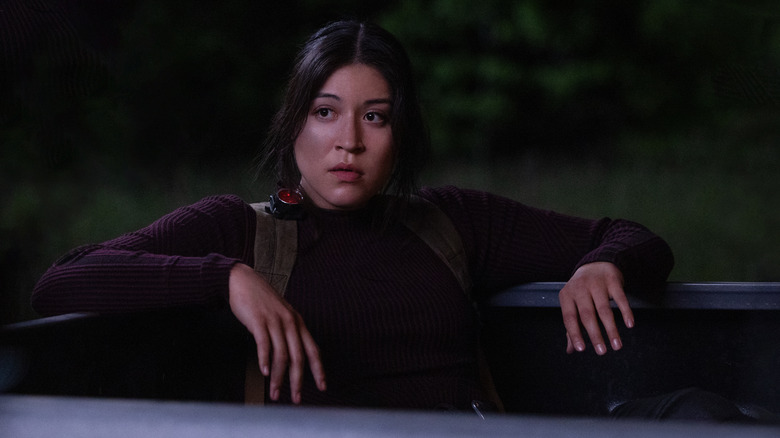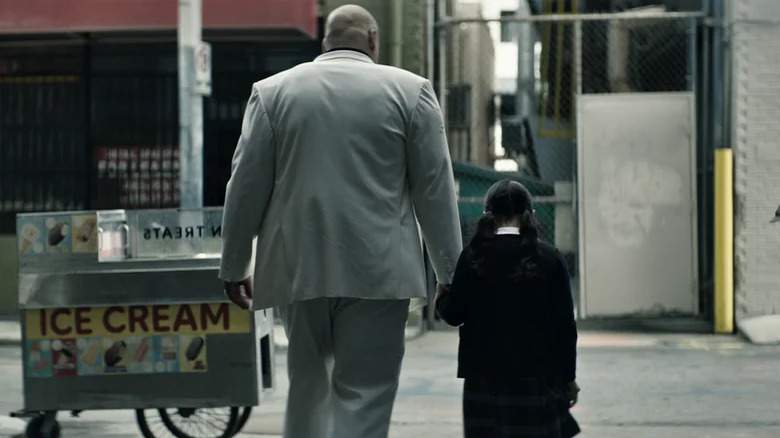Do You Need To Watch Hawkeye Before Seeing Marvel's Echo?
We are 16 years into the great Marvel Cinematic Universe experiment, and things are looking mighty different than they did even just five years ago. The box office juggernauts are few and far between compared to the sure-hits of a few years back, the audience excitement is significantly reduced, and the stories just aren't hitting as hard. Creatively, the MCU is pivoting toward throwing as many titles as they can at the audience, between the movies and the TV shows. Some have genuinely felt like breaths of fresh air, like "Loki" delivering the grand multiversal adventure we've been promised for years, or "Ms. Marvel" turning the MCU into a 2000s Disney Channel sitcom.
Now, Marvel wants to turn a new page with the release of "Echo," a show with a darker and more grounded tone, hoping it does now what the Netflix Marvel shows did almost 10 years ago in showing the variety of stories that Marvel can tell.
Except this new page is not that new, because we already met Echo during the events of "Hawkeye." That show gave us an origin for Maya Lopez, and her relationship with the nefarious Wilson Fisk, aka Kingpin. That seems like significant information audiences should have before watching "Echo," right? Not according to one of the show's producers.
In a press release from Disney, executive producer Brad Winderbaum said "Echo" is part of their new "Marvel Spotlight" banner which is less about tie-ins to the main story and more about individual character stories: "Yes, Maya was in 'Hawkeye,' but if you never saw 'Hawkeye,' believe me, we're going to tell you everything you need to know so that you can start from scratch when you watch this show."
When simplicity is more important than connectivity
So you don't need to watch "Hawkeye" to enjoy "Echo," but is that a good thing? Once upon a time, the MCU's biggest asset was considered to be the idea that you had to see the previous movies to understand the new one. Connectivity helped build the MCU, as it made each movie feel important to the larger story, with each character playing a significant role.
But at some point, the number of MCU movies became so big, the number of stories to remember so large, and the timeline so convoluted that Marvel began to ignore the world-changing things that happened in the movies. This is how we got the colossal Celestial sticking out of the ocean in "Eternals" which has not been mentioned since, or how "Secret Invasion" seemed to have zero consequences for the future of Marvel.
In order to prevent audiences from being confused because they missed a movie or a TV show, each new title ignores everything except the most basic details that they nevertheless repeat in the new title itself. If you missed out on Wanda's whole journey in "WandaVision," then "Multiverse of Madness" ignores that story and simplifies it. The movie still makes sense if you didn't watch the TV show, but if you did, then Wanda's whole character arc gets ignored at best, and betrayed at worst.
As superhero fatigue takes hold, it's time to reassess what we want out of superhero movies and shows. Is interconnectivity and continuity important? Is it better to be able to skip movies and shows and still understand every new title? At what point does a feature become a bug?

